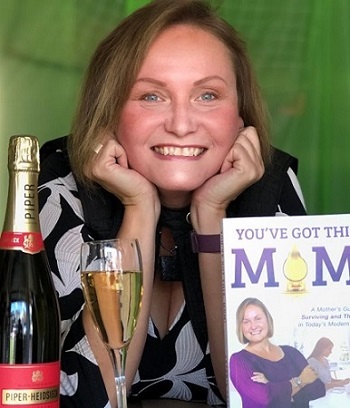
Antonia Cetín: You’ve Got This Mom!
Antonia Cetín, who has spent lots of time scientific researching bilingualism, is an instructional coach for teachers at one of the largest school boards in Ontario, Canada. She has taught English, French, mathematics, history and natural sciences and she is the owner of her own company. Applying her professional knowledge, personal experience and her research, she has written a book to help mothers in raising their children with the challenges of modern life.
Conscious, Engaged, she does not Indulge in Tears
It is interesting how the book has been created.
The afternoon of the last day of a year of homeschooling, as her was leaving, she felt extremely sad about the end of a beautiful and extremely fulfilling year spent with her son. After crying for awhile, she consciously decided not to spend the evening crying and indulging in sadness, and tried to turn her mind to something else. She accidentally discovered an advertisement for a course on how to write a book that was starting in Ottawa that evening, in forty-five minutes.
In this unbelievable turn of situation, her sadness was replaced by the joy of a new beginning, a new acquired knowledge and cognition of her own abilities. During the course, she began to write her book.
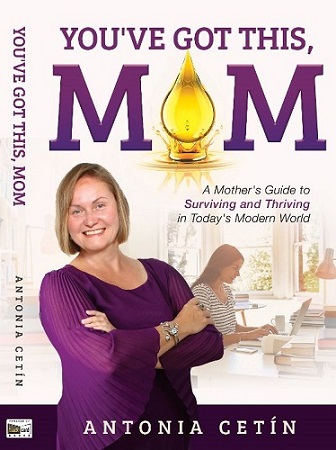
Antonia Cetín: You’ve Got This Mom!
Jasna Lovrincevic: “It is your first book. How did you decide to write your book?”
Antonia Cetín: “Everybody has a story to tell, and lots of people think they might write a book someday. But, we all know that intention is far from action and even farther from realization. For a book to actually emerge, I think there has to be some deeper motivation or some catalyst or series of events that makes it impossible for us to not act, to seize the moment.
During a sabbatical year while I was homeschooling my son, I kept my eyes open for interesting activities or workshops that we could participate in, and I came across one by Black Card Books Publishing about writing a book. Cool! I signed us up right away. However, what I didn’t realize was that it was only for adults, so my ticket arrived in my inbox, but there was no ticket for Matthieu. Oh, well, my ticket stayed unopened in the box and we went on to other activities, other workshops, other outings.
Before I knew it, the school year was over and on the last day, as Matthieu was leaving to go to his Dad’s, the realization that our year together was over hit me like a ton of bricks : that precious year I had to spend just with my son was over. The opportunity to spend this kind of time with him was amazing and it was over. And, I cried. A lot. Big ugly cried.
There was no one to save me from myself that afternoon: my son was gone home with his dad, my partner was off to a sporting event, my friends were celebrating the last day of school. And I was not exactly in the celebrating mood. I moped for awhile and not really knowing what else to do with myself, I checked my emails. While checking, I came across that ticket for the Black Card Books workshop. The workshop was on that very night, on that very weekend. It was starting downtown. In 45 minutes. I had a decision to make: was I going to stay home and feel sorry for myself all night? Or, was I going to get out of the house and maybe learn something?
Well, I cleaned up, put on some makeup, got dressed and headed downtown arriving about 5 minutes before the workshop started. The publisher running the workshop gave all kinds of advice about the whole writing and publishing process and it stirred up all kinds of questions, all kinds of thoughts about that desire to write a book. The traditional advice is to write about what you know. As a teacher and a parent, I knew a lot about the guilt, worries and self-doubt parents experience as they raise their children. And, I knew that parents all want their best for their children and need to know that they can get through the hard times and that they are exactly the right parents for the job. I wanted to encourage parents. So, I had to make a decision: was I going to go through with this? Was I going to actually make the commitment to write this book?
Over that weekend, I did lots of agonizing (fear of failure; fear of success; self-doubt; self-worth…) and lots of praying. Finally, I decided that I could always find excuses to postpone or to say no. However, if I was going to say yes, I needed to make the commitment to myself and to make this a priority. As soon as I had made my decision and said yes to myself (and to the publisher) I felt relief and calm. Once I had made the decision, I knew it was the right one. Once I had made the decision, I knew it would become real. By the end of that weekend, I had started writing my first book.”
Jasna Lovrincevic: “How long did it take to write your book? What did your book resonate in Canada?”
Antonia Cetín: “In all, once I made the decision to write, things moved relatively quickly. With the help of Black Card Books, by the end of that June weekend, I had a working title and the outline for 12 chapters of “You’ve Got This, Mom!” Over the summer, I conducted some interviews, did some extra research (I had already spent years reading parenting books and magazines and being a working mom!) and wrote the first rough draft for those chapters. During the Fall, with the generous help, comments and suggestions of friends and family, I did lots of editing. And, I convinced my son to write a bonus chapter: “What your Child Wants You to Know (Don’t Tell my mom, I’m Telling You!)” The rest was in collaboration with the publisher who organised all of the details. So many details!
So far, my book has been featured in Parenting magazines and blogs, and I’ve participated in a few Expos. A few Chapters book stores have also had me in as a guest author. My book can be found a the Ottawa library and I’m happy to say that I don’t often see it on the shelf (which means that people are borrowing it!) I have also made donations of copies of my book to organisations where it will be of benefit to mothers for example, Big Brothers Big Sisters and a local women’s shelter. I think the farthest reach has been to Singapore for a podcast with Kenneth Choo, Mother Industrialist.”
Jasna Lovrincevic: “The book “You’ve Got This Mom!” is informative and encouraging, it includes your professional knowledge, research and your experience. One could say the motto of your book is: create the life that you love. It is just principle, an intention. Are we really able to create our life how we like it?”
Antonia Cetín:” Live the life you love is definitely the core message.
We all have circumstances in our lives that we cannot control. No one has control for example of the circumstances and environment of their birth and depending on when and where that is, there are degrees of oppression we have to manage (political, cultural, familial, situational…) Furthermore, we all have hardships, problems, disappointments and we all have times in our lives when we just don’t know how we will get through. But, even when circumstances are beyond your control, no one else can decide what you will do with those circumstances. Only you can decide how you will see your circumstances, how you will react to them and what your experience of them will be.
Research, reading, and listening to powerful stories of survival and coping have taught me that the way people cope is by choosing how they will perceive their circumstances. There is always this choice to make. By making the decision to focus on inwhat they can control in their lives, miraculously, even people who live through the worst hardships find joy, kindness, and peace.
Life experience has taught me that I need to look for that joy, kindness and peace in my life. And that I need to invite more of it into my life by looking for those moments and circumstances that I can create to make my life more and more the life I love. It is a process.
For me, that means I need to connect with my source, my faith. I need to believe in myself and not to focus on guilt, worry and self-doubt. I need to get a handle on things that I can control: how to raise my kids, how to take care of my money, how to get the most satisfaction out of my work. It also means I need to do those things that will bring me joy: spending time with family and friends, going for walks or bike rides in the forest, reading, exploring the world… writing a book. These are the choices I make. Daily. It’s not always easy. But, it’s worth it.”
Jasna Lovrincevic: “In your book you have emphasised the importance of having a goal in life, something to stimulate you through your life. You have also defined very clearly activities and processes in one’s life over which one can have an influence, or control. If you could please, say more about that.”
Antonia Cetín: “Without purpose, our lives can feel like a constant meaningless, directionless trial. Wake up, commute, work, commute, chores, sleep, repeat. But what is it all for? If we can’t answer that question, it makes life it hard. That’s when we know we are not living the life we love.
A sense of purpose makes this life bearable and enjoyable. For example, even though motherhood has its share of challenging moments, when I focus on the “why” (watching my son become a strong, loving, independent and resourceful man) I can get through the challenging moments more easily. Even thought teaching is an ever more challenging profession, when I focus on the “why” (helping teachers to better serve the needs of their students, helping teachers reconnect to the joy in their profession, sharing a love of languages and a belief that all students can learn) I am more aware of the contribution I make and see how it helps one teacher, one student at a time. Even though writing a book is a daunting process, when I focus on the “why” (encouraging mothers to find have faith in themselves, to take care of themselves) I can find the courage to write my book and to share it.
And, it is my choice to look for that purpose and to see my life with that perspective. That is where I have control: in how I see my experience.”
Teaching Her Son and Travelling With him was a Privilege and a Blessing
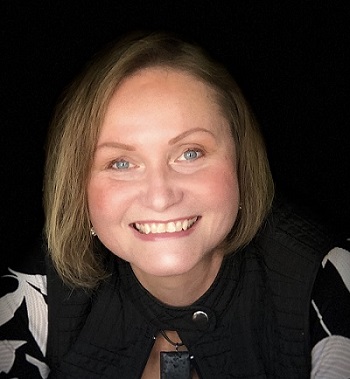
Antonia Cetín
Jasna Lovrincevic: “Your courage to teach your son at home and travel with him around the world, as you describe in your book, was a big challenge, like adventures which include very big responsibilities and being ready for different demanding situations. How old was your son at that time? What were his experiences?”
Antonia Cetín: “Thank you for that acknowledgement. I saw that time in our lives as a great opportunity and a wonderful adventure. Certainly, it was a privilege and a blessing. By teaching my son at home, I was able to fill any academic gaps he had at the time and to provide him the world as a classroom. We were able to spend so much time together and to share incredible life experiences.
At the time, Matthieu was 10-11 years old. As the year progressed, I saw him grow in confidence and develop new and existing interests. During our travels, he became more tolerant of walking tours (LOL!) where we learned so much History and Geography. He had an interest in architecture and when we returned home, he used Minecraft to create buildings inspired by the architecture we had explored: medieval castles, Roman amphitheatres, Greek temples, Gaudi buildings. Matthieu loves racing and we were able to visit the Formula 1 museum in Modena, Italy which he still talks about. He also loved the Leonardo Da Vinci Museum in Florence, and the gelato! The Museum of Science in Trieste, the Postojna Caves and caves in Greece… So many amazing places.
For both of us, it was great to see how people lived and celebrated events in different parts of the world. We got to visit places, but we also had the opportunity to interact with communities and families from various countries: Back to school with a family in Nantes, France; doing presentations about Canada at a school in Koprivnica, Croatia; Celebrating Halloween with an Italian family in Ravenna; living with a lovely family in Greece who took the time to show us their favorite places; visiting family in Croatia and Switzerland… so many adventures!
Some of our fondest memories are in Croatia which warms my heart. I am so happy that Matthieu has the opportunity to visit family and to connect with his heritage. We loved pretending to be gladiators in Pula. We still talk about our visit to the Contemporary Art Museum in Zagreb where he was impressed by a work entitled “The Sea” and where we made an exit through the three story slide. And, Bol is still his happy place: lovely, welcoming island village, pristine warm water and beaches, and a bakery where he can find a delicious “krafna s cokoladom.” We hope to visit again next summer, 2021.”
Jasna Lovrincevic: “Does this mean, in Canada there are possibilities for children to be taught at home by a private teacher?”
Antonia Cetín: “Yes, there is the possibility of Homeschooling. The requirements are to follow the curriculum as outlined by the Ministry of Education. Parents who are interested in this possibility have to apply and provide an account of learning. There are websites and organisations to facilitate the process, and to guide parents in the process.”
Jasna Lovrincevic: “As a parent, do you need to sign the contract with the school or government for teaching at home?
Antonia Cetín: “There is an application and a form of contract, yes. In our case, the year before my sabbatical, I met with the Principal of Matthieu’s school at the time who guided us through the process. Once she discovered I was an Instructional Coach, we were able to advance more easily. Upon completion of our year, I provided his school with an anecdotal report card outlining what he had learned.”
Essential Oils like Little Miracles
Jasna Lovrincevic: “You run a business with essential oils. How did you start that kind of business? What is the difference between essential and aromatic oils?”
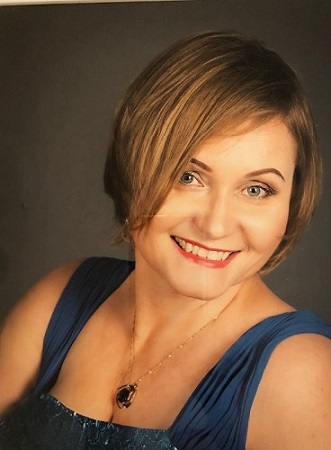
Antonia Cetín
Antonia Cetín: “Aromatic oils have some essential oils at their base, at least 2% according to one website, but have other content including other base or carrier oils, and possibly other ingredients. This makes them more affordable, less potent but still pleasant to use for aromatic purposes.
Essential oils which contain fewer other ingredients have a higher potency. They come in different grades: synthetic grade, food grade, therapeutic grade. DoTerra is the company I work with because they test and guarantee their product to be 100% pure and have a Certified Pure Therapeutic Grade of oil. No additives or other chemicals. For this reason, depending on the oil, they can be used aromatically, but also topically and internally. I even cook with some of my essential oils and use some as supplements.
I started using essential oils because a friend of mine used essential oils. But, I was stubborn and I needed so much proof that they were effective. When Lemongrass helped with the pain of my sprained ankle, I was not convinced. When Peppermint helped soothe my upset stomach, I was not convinced. When Melaleuca (Tea Tree) eliminated my son’s ear infection and we didn’t need to get antibiotics, I started paying attention.
As I leaned more about these little miracles and all of the good they could do for my family’s health, I started using them more and telling people about them. Once I realised that sharing this information paid for my product, I started my business. The great thing is that my own oils are paid for and I can spend as much time on my business as I want depending on how much I want it to grow. I am always happy to share information about DoTerra Essential Oils or how to start a business with them. Distance is never an issue! Get in touch with me at antonia.cetin@gmail.com ”
Jasna Lovrincevic:”How one can use the essential oils, for what kind of health problems?”
Antonia Cetín: “The inside joke is that there is an oil for everything. But, there is lots of truth in this joke. I am not a physician and I always suggest people work with their health care providers to ensure they get the treatment they need. As with traditional medicine, what works for one person may not work the same way for another person, and you have to find what works for you for a given ailment. Using essential oils, is a great compliment to traditional health care.
I have helped people with sleeping problems and anxiety issues; with muscular aches and pains, relief from arthritic pain; with treating skin problems and infections; colds, flus and other seasonal problems; finding relief from respiratory issues such as asthma. In my own family, we have cut down the use of over the counter medication to almost none and rarely need antibiotics anymore, which means we are healthier and are spending less money on treatments.”
Learning Languages and Helping Others Learn Languages is my Passion
Jasna Lovrincevic: “You are an instructional coach for the teachers. What are your responsibilities?”
Antonia Cetín: “Having been an educator from Grades 1-8 for over 25 years, I have enjoyed the opportunity to extend my role to Instructional Coach for the last 5 years. My main foci have been Math, Literacy and Languages, although my focus for the last couple of years has been mainly French as a Second Language instruction. In my school board, this includes a Core French program of 40 minute language instruction daily, as well as Immersion programs where students study other subjects in French such as History, Geography, Science and the Arts for at least half of the school day.
My work is always exciting because there are so many facets to it: I work directly with teachers and students in the classroom to help teachers meet the needs of their students by developing their instructional practices; I provide Professional Development opportunities to Second Language teachers including live presentations, Google classroom presentations, live workshops (from an hour to a few days), distance workshops, video instruction; and, I facilitate Collaborative Inquiry Learning for teachers. I have also had the opportunity to present at conferences such as OMLTA, EducLang, OCETF, and at Summer Academies such as OCDSB, ETFO, and University of Ottawa. I have also developed Instructional Materials and Resources for teachers to use in the classroom. My job is to share latest research in Second Language Instruction and to develop best practices.
As such, I have done extensive research into the CEFR (Common European Framework of Reference) and am a Certified “Formatrice DELF/DALF A1-C2” (Diplôme d’études de langue française / Diplôme avancé de langue française) with France Éducation International . In the Spring and Fall, I organise the testing of over 800 students to challenge the DELF, and I train the teacher assessors who facilitate this testing. This incredible CEFR training has helped to move language teaching practices from content based to competency focused with great results in the classroom.
I LOVE my job!!!!”
Jasna Lovrincevic: “You have studied French and Spanish: Have you done some research regarding bilingualism? Have you been in contact with dr. Ellen Bialystok?”
Antonia Cetín:” A fellow Canadian! I don’t believe I have met Dr. Bialystok although it would be great to work with her. As it turns out, I have done quite a bit of research on bilingualism and find myself fascinated by how the brain learns languages. Recently, I’ve worked with Dr. Katy Arnett and Dr. Léo-James Levesque to promote differentiation practices in the Second Language Classroom. I’m also using the Neurolinguistic Approach to Language learning developed by Dr. Claude Germain and Dr. Joan Netten and have read research by Dr. David Sousa.
Learning languages and helping others learn languages is my passion.”
Studying at the Oldest European Universities
Jasna Lovrincevic: “You have studied in Canada, in France at the Sorbonne and in Spain in Salamanca, which are famous and also among the oldest european universities. What is your European experience, comparing with your experience in Canada, regarding university, the way of life, geography and ….?”
Antonia Cetín: “As a University student, I found the European and North American systems quite different. Coming from a system where studying was project and problem solving based to a system where studying was content and research based took some adapting. Ultimately, I consider myself so lucky to have had the opportunity to learn from and survive both systems as the combined experience made my whole educational experience so much richer. (Thanks, Mom and Dad!)
I’m certain that if I had not had those experiences in France and Spain, I would not have become a second language teacher nor had the job I have today. I am truly blessed to have such a background.
As far as a way of life goes, there are aspects of each lifestyle that I love which is why, although I live in Canada and enjoy my professional life here, I frequently return to Europe to travel and learn, as evidenced by my sabbatical travel with my son and an art history course I took at the Louvre one summer! Next summer, I’m looking forward to a trip to Croatia to visit with family and spend some time on the Coast. I hope to do even more travelling and learning in the future. Anyone have ideas on where I should go to work on my Italian or Greek? Or maybe using my DEFL Formatrice qualifications abroad?”
Jasna Lovrincevic: “You have written a book, you have your own business, you are an instructional coach for teachers, you are teacher, you write your own blog, and you are a responsible mother; how do you organize your time?”
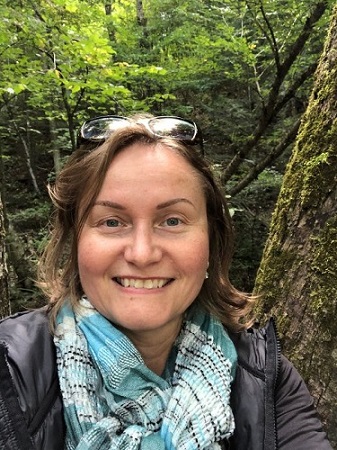
Antonia Cetín
Antonia Cetín: “That is the greatest question. Time is so valuable and we don’t even know how much of it we have.
There are always so many things to do. Some are responsibilities that need to be met and others are things we impose upon ourselves or choose to do. I’m thinking that you have already deduced that I am an A-type personality who always finds something to do, some project to work on, something to learn. My challenge is to build in time where I am not doing and where I am just being. This is my time with my family, by myself and with God. And, I need to consciously make the decision to spend my time this way, otherwise I get lost in the doing, and I forget to appreciate what I have and to feel the joy.
The greatest challenge is finding the balance that will have us doing the musts and the shoulds but still having time for the want tos. I think daily life is about finding this balance. What helps me find that balance? Prioritizing: I can only do one thing at a time, so I always have to decide, “What is the most important thing right now?” I can’t be or do all of those things all of the time. But, if I concentrate on each one separately, and allow myself the time to develop in that area, it gets done. One step at a time. I also have to come to terms with the fact that sometimes, the most important thing to do has to be to do nothing. To rest.
What else helps? Surrounding myself with like-minded people who will inspire and motivate me. Accepting help from other people and accepting that I can’t do everything by myself. Remembering to be patient with myself (hah!) and remembering to notice what brings me joy and to include more things that bring me joy. Little by little… Living the life I love.”
